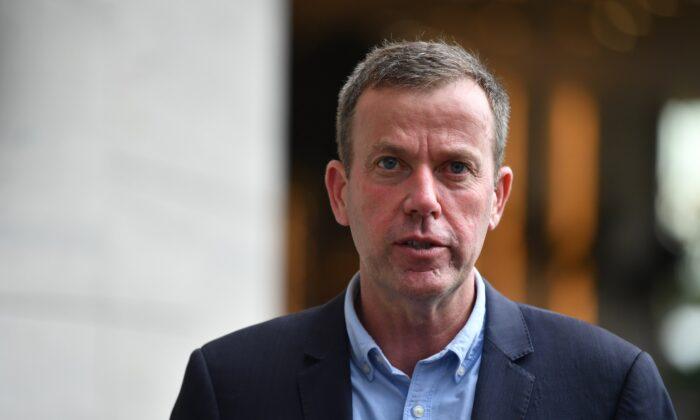Federal Trade Minister Dan Tehan is confident Australia’s urea supply will be unaffected as the federal government seeks to secure the crucial diesel exhaust ingredient from other countries.
Tehan has also urged businesses not to hoard Adblue—a brand of diesel exhaust fluid (DEF) containing urea used in many trucks and modern diesel vehicles—in order to prevent disruptions to the nation’s freight and logistics sector.
“There is obviously issues around containers, shipping disruptions which we’re also working through,” Tehan told ABC radio on Dec. 13.
“But from everything that we’re seeing, there is a clear supply which we can bring to Australia and given we have seven weeks already in stock, we are very confident we will be able to get the urea that we need into the country.”
Last month, the federal government imported 27,000 litres of urea from South Korea.
Australia is also speaking with Indonesia and will approach Saudi Arabia, the United Arab Emirates, Qatar and Japan, to secure further urea supplies.
“I’ve spoken to my Indonesian counterpart and there is some supply in Indonesia that we should be able to access in the coming weeks,” Tehan told the Australian Broadcasting Corporation (ABC).
This follows the banning of urea exports from China as it prioritises domestic supply.
“We’ve got pretty good trade relations with Indonesia and since they’re one of the world’s biggest suppliers (of urea), it’s a good opportunity to see what we can do in terms of bilateral or multilateral trade arrangements,” Leaney said.
“We’ve got good trade relationships with South Korea as well.”
Leaney added that the geographical closeness of Indonesia is more appealing for Australia as urea is a cheap commodity for its volume.
“What you don’t want is transporting cheap stuff using expensive transport a long way because then transport becomes a too higher percentage of the total price you’re paying,” he said.
Meanwhile, the Victorian Farmers Federation (VFF) said the shortage was a “wake-up call” for an over-reliance on concentrated international supply chains.
Milgate added that the agricultural supply was already under strain with truck driver shortages and global supply chain disruptions.
“As farmers produce essential perishable goods, the supply of critical inputs like Adblue is essential to maintaining our food security.
“It’s critical the AdBlue supply chain including manufacturers, the fertiliser industry, transport operators and government work together to address the shortages,” Milgate said.
National Road Transport Association’s chief executive Warren Clark previously called on the federal government to form a task force of industry groups to look at options to mitigate the situation in the immediate term.
“Our industry isn’t the only one that will be affected, but we will be hit first and hardest.”





